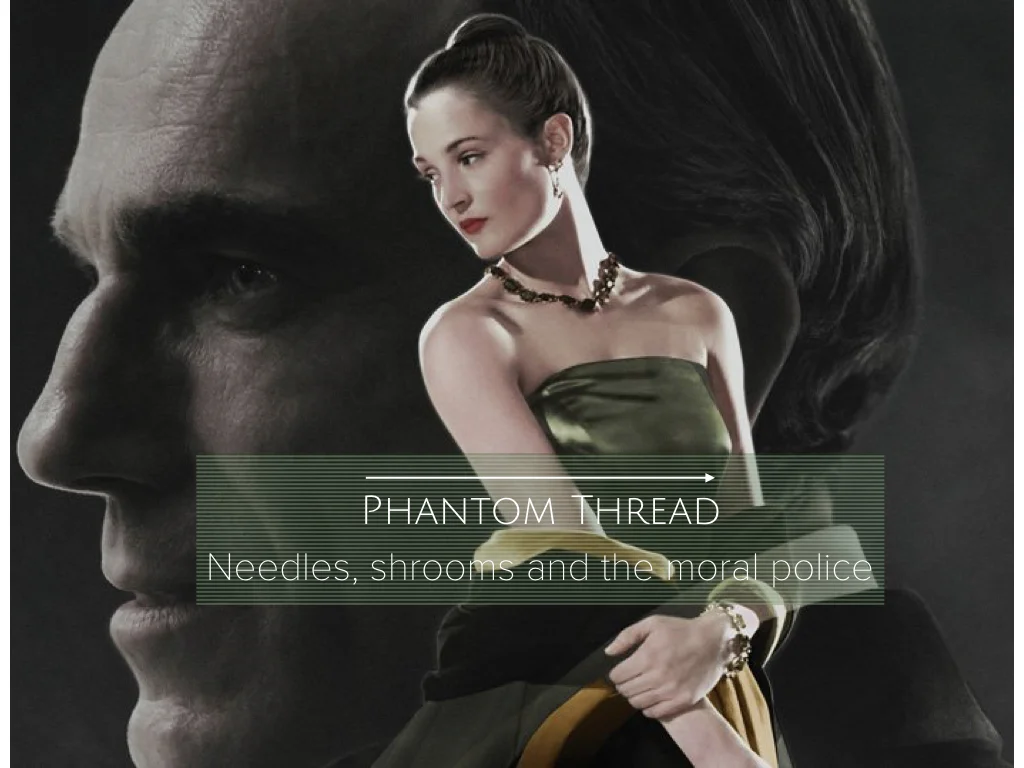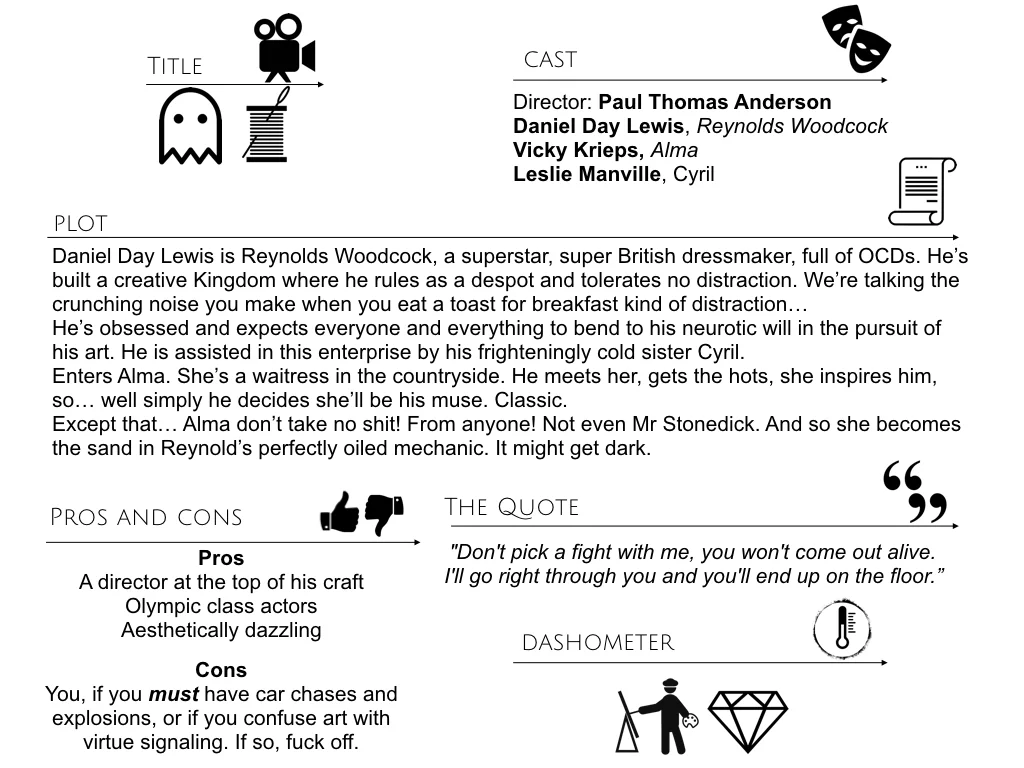Phantom Thread: needles, shrooms and the moral police
Plot
England, the 1950s. Meet Reynolds Woodcock, the most renown and sought fashion designer of his time, deservedly so. He’s pretty handy with a needle. Thing is, to achieve genius at his craft, Rey needs a certain order to his life, which does not tolerate the smallest deviation or distraction. The man is easily disturbed so you better be stealthy. No slurping your tea no crunching your toast or else. He has little space and patience for company aside from his sister slash assistant slash muscle Cyril. Cyril is stoned face, cold and silent. She will make you shit your pants. Rey has OCDs and an unsolved fixation with mummy which makes him particularly unpleasant with the ladies. He likes to dress’em (if they are worthy of his creations, which is not necessarily the case) and that’s about it…
Enters Alma. She’s a waitress in a country side restaurant where Reynolds has his table (by the way, does it exist? where is it? I must go). The two meet when he takes a well-deserved break from the stress of success and the annoyance of a future-ex girlfriend to be axed in his absence by Cyril. They hit it off immediately, and he decides she’ll be his new muse.
Soon though, he gets bored, then annoyed. But Alma don’t take shit from nobody! She ain’t gonna be bullied. In fact, Alma is the alpha, and she quickly reveals herself to be as neurotic and brutal as he is… and slightly more. Oh, and she's handy in the kitchen, especially with mushrooms.
Watch Reynolds’ Swiss-watch perfection of a world fall apart while Alma deconstructs it brick by brick and rebuilds it at her taste. Even Cyril is tamed… and impressed. The two dance to a dangerous music and on very precarious ground. Toxic cocktail.
Dashometer
Technically and aesthetically speaking it’s hard to find a film as accomplished. Do not blink. Every single shot, read again, every – single – shot has been carefully crafted. The attention to detail is simply unparalleled. Sound (pay attention to the score) and image (observe the colors and the camera movement) merge into a perfectly balanced object of cinema that even manages to entice the three other senses. Your mouth may water, you may feel the soft and rich fabric on your finger tips and smell scents and perfumes. It is dazzling and if you were to deny that, then I’d tell you to fuck off.
However as usual with Paul Thomas Anderson, this mastery, everything beautiful and exquisite it sets up is at the service of a story that is disturbing and brutal. The uncomfortable story of a highly toxic relationship fueled by mutual abuse. This confuses many because these days in America, the collective mind suffers from a high fever of moral panic. If you are going to tell such a story, you better stand on a moral white horse, hoist high the flag of self-righteousness, shout loud into the bullhorn that you disapprove and issue a thick, highlighted indictment, or else you will be misunderstood at best, confused for your subject at worst. Some stories, jokes you cannot tell anymore without being confronted to offended moral militias. Paul Thomas Anderson could care less. He tells his stories with no compromise to the politically correct or the social justice warfare. He rides no horse, waves no flag and will certainly not indict his characters. From Boogie Nights to Inherent Vice, from Magnolia to the Master, his pictures are colonoscopies of the human character dressed exquisitely, as if by Mr Woodcock himself. The onus is on the spectator to digest the art and reflect. You feel righteously outraged? Relax! A work of art can depict the bad and the ugly, without having to shove a disclaimer in your face. Artists should not have to not make a point of condemning their subjects no matter how uncomfortable they make you feel. Allow yourself to find beauty even in the representation of darkness.
In this case, the story of Phantom Thread also happens to be served by three extraordinary actors who have reached the highest expression of their craft. No surprise from Daniel Day Lewis (certainly on our personal Mount Rushmore), but Vicky Krieps as Alma and Lesley Manville as Cyril are revelations to us. Both gave their character absolutely fascinating depth and complexity, both at times moving and terrifying.
In the end, we were enchanted, craving, transported, hungry, annoyed, fascinated, disturbed, shocked and in awe… What else could we wish for?


